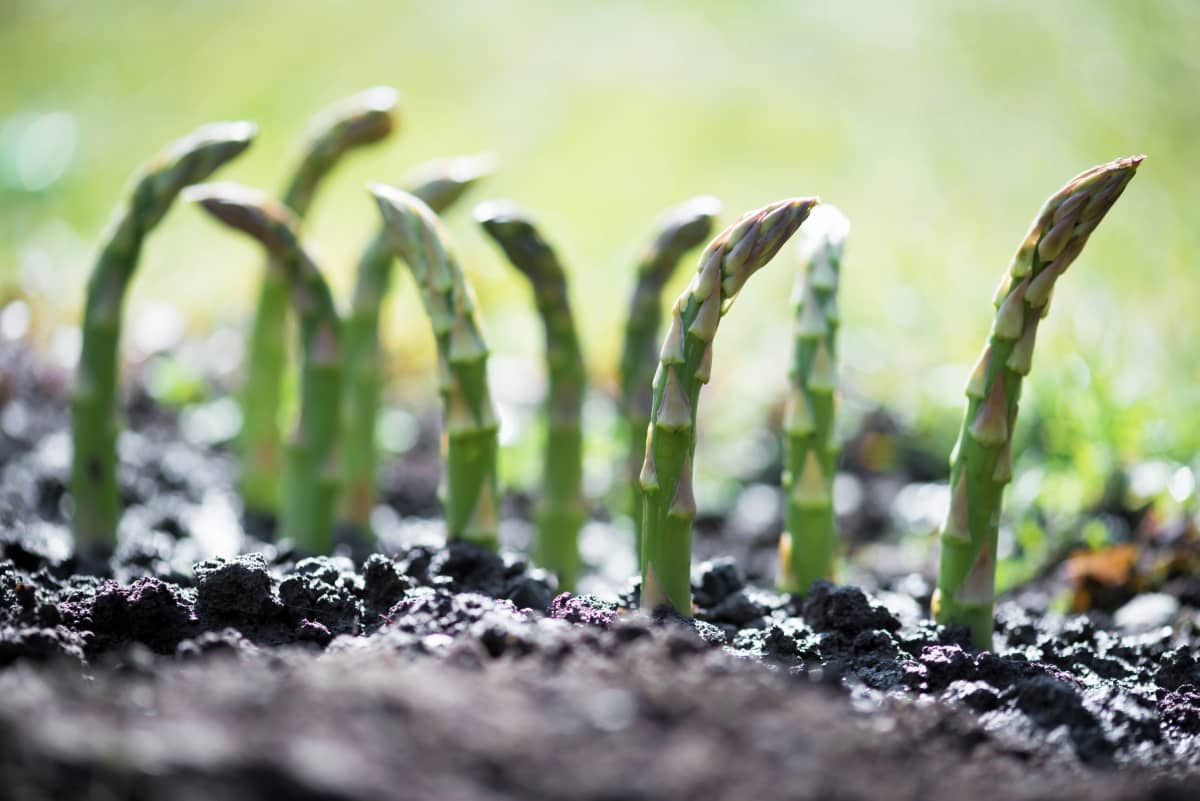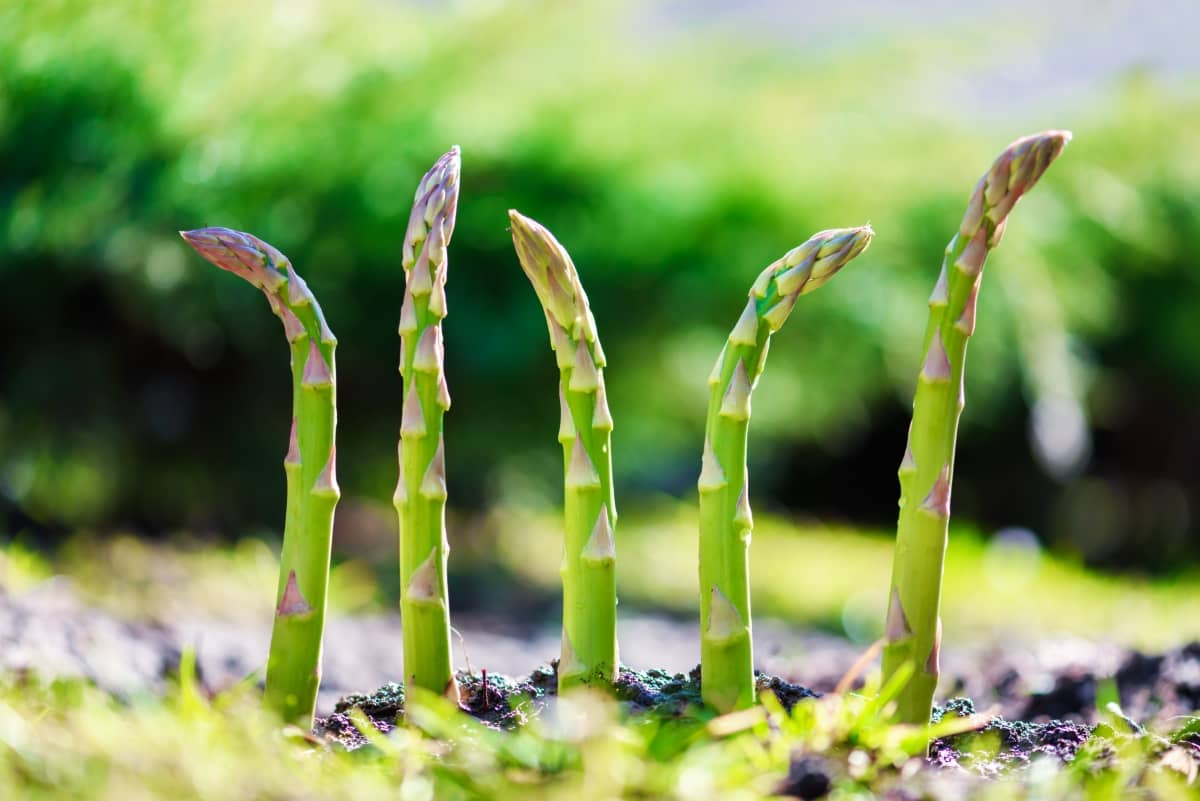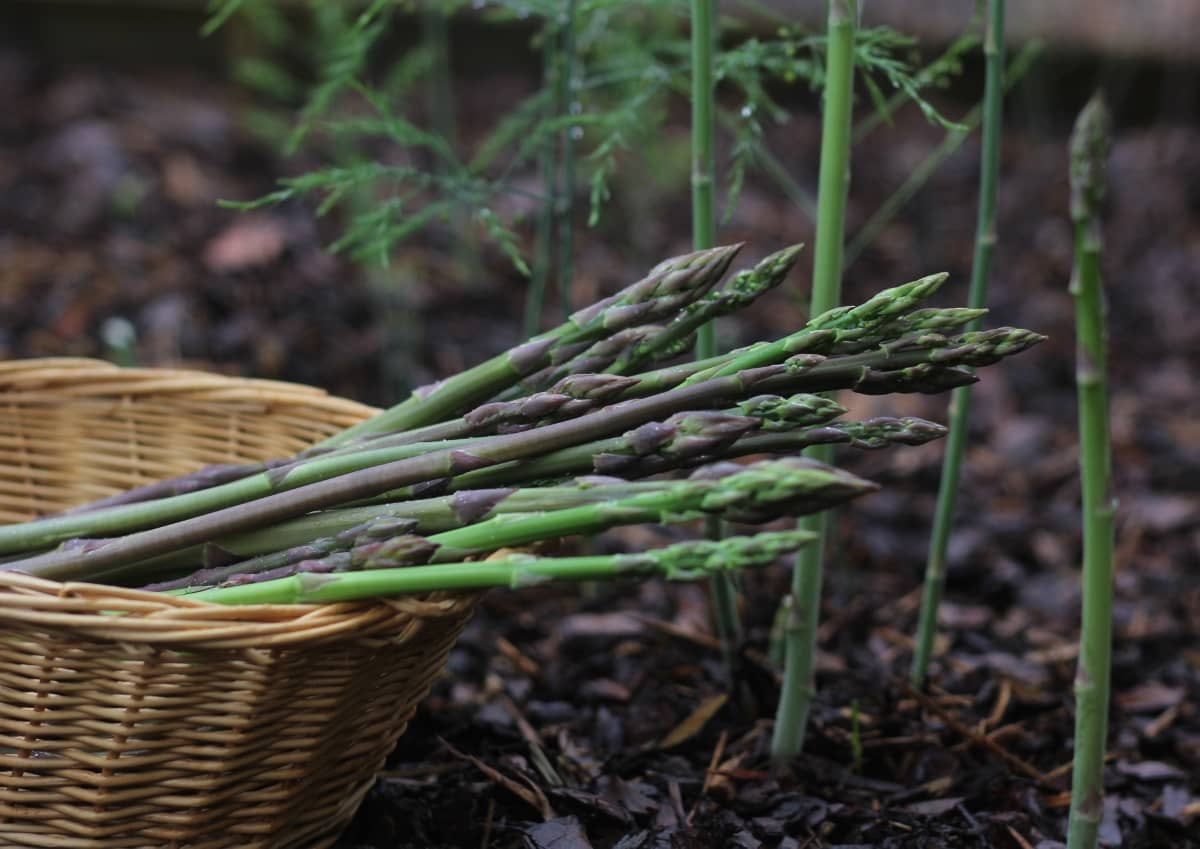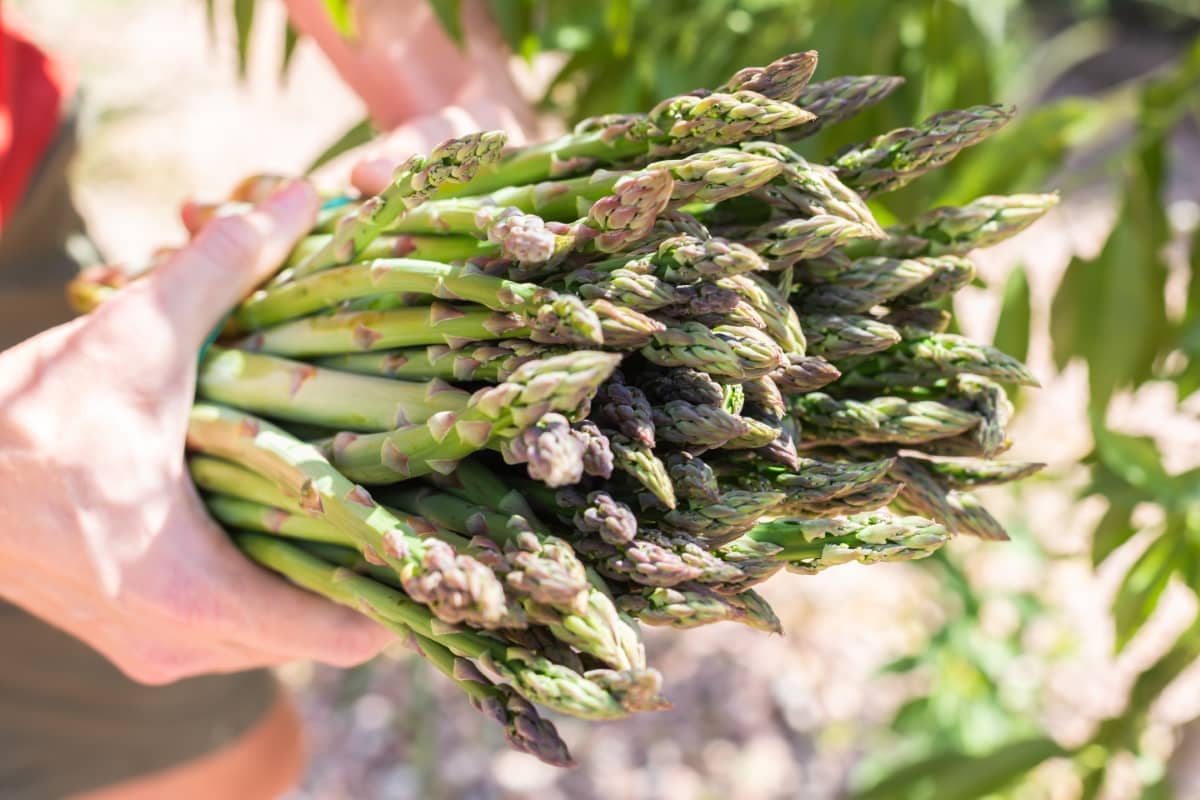Asparagus is a nutritious vegetable that requires proper care to thrive. One essential aspect of Asparagus cultivation is fertilization. Fertilizing your Asparagus plants frequently can make a significant difference in their growth. Fertilizers provide essential nutrients, ensuring optimal development for your Asparagus plants. These nutrients include nitrogen, phosphorus, and potassium, which are crucial for vigorous growth, strong root systems, and increased yield.

Homemade Fertilizers for Asparagus
Introduction to Asparagus Nutrition
Understanding Asparagus Nutrient Requirements
Understanding the nutrient requirements of Asparagus is crucial for successful cultivation. Organic Asparagus Feeding can provide numerous benefits. Asparagus plants require several essential nutrients for optimal growth. These include nitrogen, phosphorus, potassium, calcium, magnesium, and trace minerals such as iron and zinc.
The Benefits of Organic Fertilization
Organic fertilization offers several advantages over synthetic alternatives. Organic fertilizers are derived from compost or animal products. This means they release nutrients slowly over time instead of providing a sudden burst that may cause harm to the plants or leach into surrounding water sources.
Composting Basics for Asparagus
How to Create Compost at Home
Composting is the best way to create nutrient-rich soil for your Asparagus plants. Creating Asparagus Compost Mix at home is surprisingly simple. To start composting, gather organic materials like fruit and vegetable scraps, coffee grounds, grass clippings, and leaves. Aim for a good mix of green (nitrogen-rich) and brown (carbon-rich) materials to ensure proper decomposition.
Next, find a location for your compost pile or bin. It should be in a well-drained area that receives partial sunlight. Layer the organic materials in alternating green and brown layers, making sure to add some soil or finished compost occasionally to introduce beneficial microorganisms.
Keep the pile moist by watering it regularly but not soaking it. Turn the pile every few weeks with a garden fork to aerate it and speed up decomposition. Within several months to a year, depending on various factors like temperature and moisture levels, you’ll have rich dark compost ready for use.
Using Compost as Asparagus Fertilizer
When using compost as fertilizer for your Asparagus beds, spread a layer of about one inch thick around each plant’s base in early spring before new growth appears. This will provide slow-release nutrients throughout the growing season while improving soil structure and moisture retention.
Coffee Grounds as Fertilizer
The Nitrogen Benefit of Coffee Grounds
Nitrogen plays a crucial role in promoting leafy green growth and enhancing overall plant health. To use Coffee Grounds in Asparagus Garden, start by collecting the used grounds from your morning brew. Another method is to create a compost tea using coffee grounds. Simply place them in a bucket with water and let them steep for about 24 hours. This will extract valuable nutrients from the grounds, creating a nutrient-rich liquid fertilizer that can be poured directly onto your Asparagus plants.
Application Methods for Asparagus Beds
It’s worth noting that while coffee grounds provide an excellent source of nitrogen, they are slightly acidic. Spread coffee grounds evenly around the base of each Asparagus plant or directly onto the soil surface. Remember not to bury them too deep, as this may prevent water penetration and air circulation.
Eggshell Calcium Boost
Preparing Eggshells as Fertilizer
Eggshell Calcium for Asparagus, which is crucial for the healthy development of Asparagus. Calcium plays helps in cell division and structure, ensuring strong stems and leaves. To prepare eggshell fertilizer at home, simply collect eggshells and let them dry completely. Once they are dry, crush them into small pieces using a blender. You can then sprinkle these crushed shells around the base of your Asparagus plants or mix them directly into the soil during planting.
The Role of Calcium in Asparagus Growth
By adding this homemade eggshell fertilizer to your garden bed, you’ll provide essential calcium nutrients to promote robust growth and improve overall plant health. Plus, it’s an environmentally friendly way to repurpose something that would otherwise go to waste. Boosting the calcium levels in your soil with eggshell fertilizer will ensure that your Asparagus plants have all they need for optimal growth.
In case you missed it: How to Grow and Care for Yardlong Beans/Asparagus Beans From Seed

Banana Peel Potassium Kick
Creating Banana Peel Fertilizer
Potassium plays a key role in the overall well-being of Asparagus. It promotes strong root development, improves disease resistance, and enhances nutrient uptake. Creating Banana Peel Fertilizer for Asparagus is simple and cost-effective. Start by collecting ripe banana peels – make sure they are free from any pesticides or chemicals. Chop them into small pieces and blend them until they become a smooth paste. You can then mix this paste with water at a ratio of 1:5 (one part peel paste to five parts water).
Potassium’s Importance to Asparagus Health
Once you’ve prepared your banana peel fertilizer, it’s time to apply it to your Asparagus beds. Pour the mixture around each plant, making sure not to saturate the soil too much. By harnessing the power of banana peel fertilizer, you’re not only providing essential nutrients for your Asparagus but also reducing waste in an eco-friendly way.
Wood Ash for Soil Health
Benefits of Wood Ash for Asparagus
When it comes to Wood Ash use Asparagus Beds, which are essential for healthy plant growth. Potassium plays a crucial role in many aspects of Asparagus health, including root development and disease resistance. By adding wood ash to the soil, you can provide your Asparagus with this important nutrient and help them thrive.
How to Apply Wood Ash Correctly
First, make sure the ashes are completely cooled before handling them. Then, sprinkle a thin layer of wood ash around the base of each Asparagus plant. Be careful not to use too much, as excessive amounts can raise the pH level of your soil too high and inhibit nutrient uptake. It’s also important to note that while wood ash provides beneficial nutrients like potassium, it does not contain nitrogen or phosphorus. Therefore, it should be used in conjunction with other organic fertilizers or compost to ensure balanced nutrition for your Asparagus plants.
Fish Emulsion Fertilizers
Making Homemade Fish Emulsion
Fish Emulsion for Asparagus Plants is a fantastic way to give your Asparagus plants the nutrients they need to thrive. To make Homemade Asparagus fertilizers like homemade fish emulsion fertilizer, start by collecting fish scraps or heads from your local seafood market. These can be used as the main ingredient in your fertilizer mixture. Simply blend the fish scraps with water until you have a smooth consistency.
Application Tips for Asparagus Plants
Dilute the fish emulsion with water according to the package instructions or based on the needs of your specific plants. Then, using a watering can or sprayer, evenly distribute the mixture around the base of each plant. In addition to applying fish emulsion directly to Asparagus plants, you can also use it as part of compost tea or combine it with other organic fertilizers for a nutrient-rich soil amendment.
Seaweed Fertilizer for Trace Minerals
How to Harvest and Prepare Seaweed
Seaweed fertilizer is a fantastic Natural Fertilizer for Asparagus providing trace minerals to your Asparagus plants. Harvesting seaweed can be an enjoyable activity that connects you with nature’s abundance. When collecting seaweed, make sure to choose healthy specimens from clean waters. Avoid areas near industrial sites or pollution sources. Look for varieties such as kelp or rockweed, which are rich in beneficial elements like potassium, nitrogen, and magnesium.
To prepare Seaweed Extract for Asparagus Growth, rinse off any saltwater by soaking the collected seaweed in fresh water overnight. This process helps remove excess salts that may harm your plants. Afterward, chop the seaweed into smaller pieces to aid decomposition and nutrient release.
Boosting Asparagus with Trace Minerals
Once prepared, add the chopped seaweed directly to your compost pile, or when it comes to Asparagus Mulching Techniques, use it as mulch around your Asparagus beds. As it breaks down over time, the seaweed will gradually release its valuable trace minerals into the soil.
Epsom Salt for Magnesium and Sulfur
The Benefits of Epsom Salt to Asparagus
Magnesium and sulfur are two essential nutrients that play a key role in the growth and development of plants. Asparagus, being a heavy feeder, requires an adequate supply of these nutrients to thrive. Adding Epsom salt to Asparagus beds can provide a much-needed boost of magnesium and sulfur. Magnesium helps with chlorophyll production, which is crucial for photosynthesis and overall plant health. Sulfur aids in protein synthesis and enzyme activity, promoting vigorous growth.
Guidelines for Epsom Salt Application
To apply Epsom salt to your Asparagus plants, simply dissolve one tablespoon of Epsom salt in water. Apply this solution to the soil around the base of the plants once every four weeks during the growing season. Remember not to overdo it with the Epsom salt application. Too much magnesium can lead to nutrient imbalances or toxicity in your Asparagus plants.
In case you missed it: 20 Common Asparagus Plant Problems: How to Fix Them, Solutions, and Treatment

Companion Planting and Fertilization
Benefits of Companion Planting for Asparagus
One of the key benefits of companion planting for Asparagus is pest control. Certain plants, such as Marigolds and Tomatoes, emit natural compounds that repel pests like nematodes and aphids. Legumes like Beans and Peas are known nitrogen fixers, meaning they can convert atmospheric nitrogen into a form that other plants can use.
Natural Fertilizer Contributions from Companion Plants
Furthermore, some companion plants act as dynamic accumulators, which means they have deep roots capable of extracting minerals from deeper soil layers. These minerals are then stored in the plant’s leaves or stems and released when the plant decomposes or is cut back. This process helps improve overall soil fertility and nutrient availability for neighboring crops like Asparagus.
In case you missed it: Growing Organic Asparagus in Containers

Conclusion
Homemade organic fertilizers offer several advantages over synthetic ones. They provide a natural and balanced source of nutrients for your plants without the risk of harmful chemicals or environmental pollution. Additionally, these DIY Asparagus Plant Food options allow you to customize the ingredients based on your needs and resources.
Embracing an organic approach not only benefits your garden but also promotes sustainability by reducing reliance on chemical interventions. By utilizing homemade organic fertilizers for Asparagus beds, you contribute to healthier soil ecosystems while reaping delicious rewards from your harvests.
- How to Grow Hibiscus from Flower
- Plantation Ideas for Home Decoration: A Beginners Guide
- Flower Garden Designs and Layouts for Beginners
- Planting and Spacing Techniques in Papaya: A Beginner’s Guide
- Growing Gold: Essential Techniques for Planting Pineapples
- How to Make Kalanchoe Plant Bushy: Home Remedies and Solutions
- 11 Reasons Why Your Gardenia is Not Blooming: Home Remedies and Solutions
- Eco Elegance: The Guide to Designing a Drought-Tolerant Landscape
- Gardening on a Slope: Strategies for Hillside Landscaping